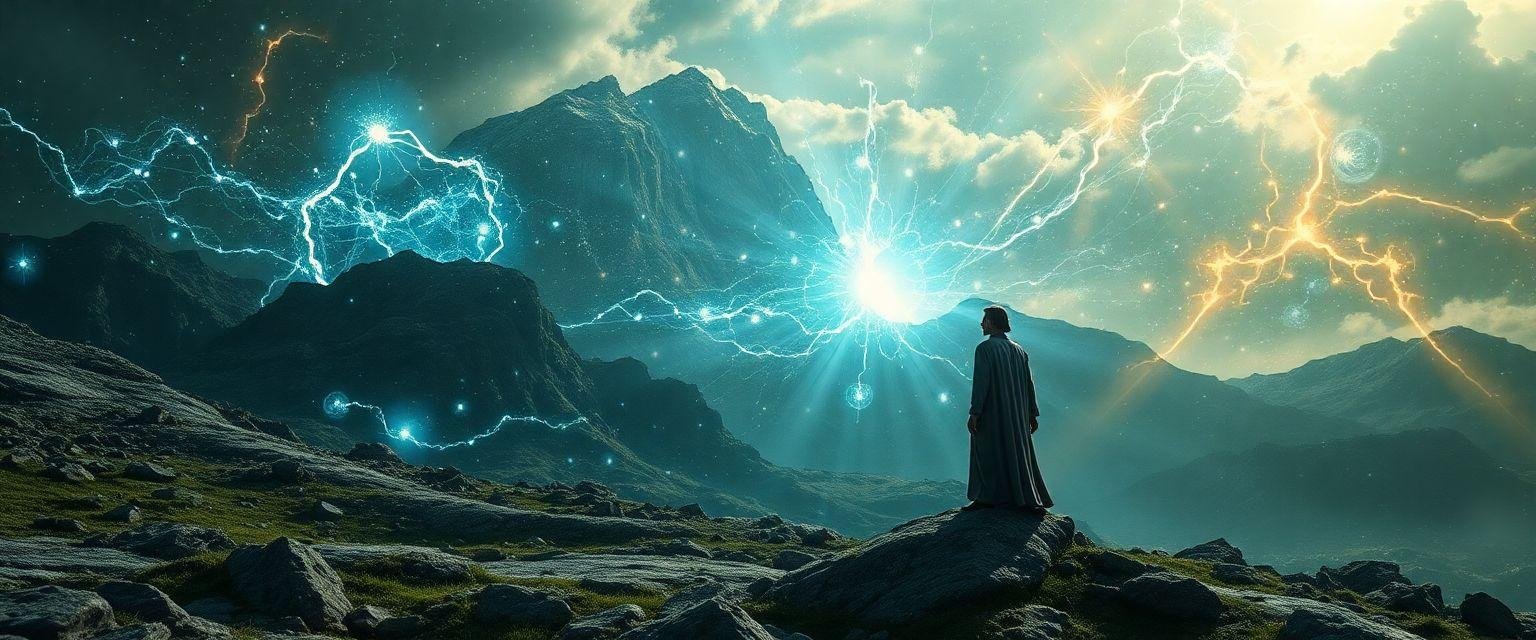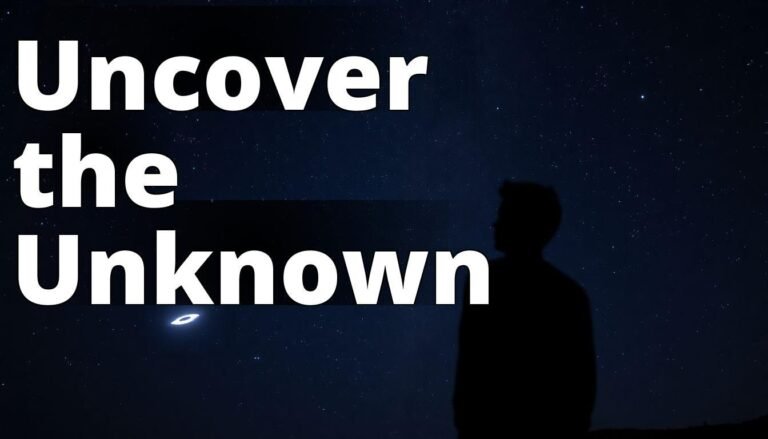What Is Quantum Physics?
Imagine a world where the rules of reality as we know it no longer applywhere particles can exist in multiple states at once and teleport across space. This isn’t the plot of a science fiction movie; it’s the bizarre, mind-bending realm of quantum physics. Whether you’re a science enthusiast or just curious about the universe’s mysteries, grasping the basics of quantum physics can be as thrilling as watching a Marvel movie unfold.
Understanding the Quantum World
Discover the fascinating concepts of the quantum realm and its implications in both science and popular culture.
– What is the quantum world? It’s a domain governed by quantum physics, where particles can exist in multiple states and behaviors differ from classical physics.
– Can you survive in the quantum realm? Survival in the quantum realm is a theoretical concept, as conditions differ vastly from our reality, making it largely speculative.
– Is time different in the quantum realm? Yes, time behaves unusually in the quantum realm, often perceived differently compared to our everyday experience, with implications for time travel and perception.
Quantum Physics Definition
Quantum physics is the branch of physics that deals with the smallest particles of the universe. These particles include electrons, protons, and photons, which make up everything we see and don’t see. Unlike classical physics, which explains the macroscopic world we observe daily, quantum physics delves into the microscopic world of atoms and subatomic particles, where strange things happen.
Insider Tip: Quantum physics can seem daunting, but think of it as the language of the tiniest elements in the universe. It’s like learning a new dialect of reality.

In quantum physics, particles can behave as both waves and particles, a phenomenon known as wave-particle duality. This duality is beautifully demonstrated in Thomas Young’s famous Double Slit Experiment. When particles like electrons are shot through two slits, they create an interference pattern on the other side, just like waves do. But here’s the kicker: when observed, the particles behave like solid particles, not waves. This behavior challenges our intuitive understanding of reality.
Reference: Wave-Particle Duality
What Is Quantum Physics Used For?
Quantum physics isn’t just an intellectual curiosityit’s the backbone of many modern technologies. From the GPS in our phones to the MRI machines in hospitals, quantum mechanics plays a crucial role.
Insider Tip: Next time you use your phone’s GPS, remember that quantum entanglement helps keep it accurate. Without quantum physics, we’d be lostliterally.

One of the most significant applications is in quantum computing. Unlike classical computers, which use bits as the smallest unit of data (either 0 or 1), quantum computers use qubits, which can be both 0 and 1 simultaneously thanks to superposition. This allows quantum computers to solve complex problems much faster than traditional computers.
Reference: Quantum Computing Explained
What Is the Quantum World?
The quantum world is like stepping into a parallel universe where the rules we take for granted are turned upside down. Particles can exist in multiple places at once, and their properties aren’t determined until they’re observed. This might sound like fantasy, but it’s the reality of quantum mechanics.

In the quantum world, particles are governed by probabilities rather than certainties. For instance, Heisenberg’s Uncertainty Principle states that we cannot simultaneously know a particle’s position and momentum with absolute precision. The more accurately we know one, the less accurately we can know the other. This principle suggests a fundamental limit to what we can know about the quantum world.
Reference: Uncertainty Principle
How Does Quantum Physics Work?
Understanding how quantum physics works requires us to abandon classical notions of cause and effect. At the heart of quantum mechanics are several principles that defy our everyday experiences.
One such principle is quantum entanglement, where particles become interconnected in such a way that the state of one instantly influences the state of another, regardless of the distance separating them. Albert Einstein famously referred to this as “spooky action at a distance.” Experiments have shown that entangled particles communicate faster than the speed of light, suggesting that our understanding of space and time might be incomplete.
Reference: Quantum Entanglement Research
What Are the Principles of Quantum Physics?
Quantum physics is built on several foundational principles that challenge our perception of reality:
- Wave-Particle Duality: Particles can exhibit both wave-like and particle-like properties.
- Superposition: Particles can exist in multiple states at once until measured.
- Entanglement: Particles can remain connected over vast distances.
- Uncertainty Principle: Limits the precision of simultaneous measurements of certain pairs of properties.
- Quantum Tunneling: Particles can pass through barriers that would be insurmountable in classical physics.

These principles not only redefine our understanding of the physical world but also open doors to technologies like quantum cryptography, which promises unbreakable codes for secure communication.
Reference: Principles of Quantum Mechanics
What Is the Quantum Realm?
The term “Quantum Realm” often conjures images of a fantastical world where the laws of physics as we know them no longer apply. In scientific terms, it’s a metaphor for the scale at which quantum mechanical effects become significant.

In the Quantum Realm, particles behave in ways that seem impossible in the macroscopic world. For instance, particles can be in two places at once or communicate instantaneously across vast distances. It’s a realm that defies intuition and challenges our understanding of reality.
Reference: Understanding the Quantum Realm
What Is the Quantum Realm in Marvel?
Marvel’s depiction of the Quantum Realm captures the imagination by blending science with fantasy. In the Marvel Cinematic Universe (MCU), the Quantum Realm is portrayed as a dimension that exists beneath our own, accessible through advanced technology and offering possibilities beyond our wildest dreams.

In movies like “Ant-Man,” characters shrink to subatomic sizes to enter this realm, encountering bizarre landscapes and entities. Marvel’s creative interpretation of the Quantum Realm introduces audiences to the wonders and potential dangers of exploring quantum dimensions.
What Is the Quantum Realm in Ant-Man and the Wasp?
In “Ant-Man and the Wasp,” the Quantum Realm plays a critical role in the storyline. The characters venture into this mysterious dimension to rescue Janet van Dyne, who has been trapped there for decades.

This exploration of the Quantum Realm showcases its potential as a realm where time and space are fluid, offering a unique narrative device for the MCU. It also raises intriguing questions about the nature of reality and the possibilities of quantum technologies.
What Is the Quantum Realm in Ant-Man and the Wasp: Quantumania?
The upcoming “Ant-Man and the Wasp: Quantumania” promises to delve even deeper into the Quantum Realm, exploring its mysteries and tapping into its potential for new adventures.

As the MCU continues to expand its exploration of the Quantum Realm, it invites audiences to ponder the possibilities of quantum physics and its implications for the future of science and storytelling.
How to Enter the Quantum Realm
While entering the Quantum Realm remains a concept confined to science fiction, researchers are making strides in exploring quantum dimensions through advanced technologies like particle accelerators and quantum computers.

These technologies allow scientists to manipulate particles at quantum scales, revealing insights into the behavior of matter and energy at the smallest levels. While we may not physically enter the Quantum Realm, understanding its principles could unlock new realms of possibility in technology and medicine.
Reference: Advances in Quantum Computing
How Long Is a Day in the Quantum Realm?
The concept of time in the Quantum Realm is as fluid and perplexing as its spatial dimensions. While Marvel’s films suggest that time can pass differently in the Quantum Realm, scientific understanding of time at quantum scales remains speculative.

In quantum mechanics, time is often a parameter rather than a dimension, leading to debates about its true nature. As researchers probe deeper into quantum phenomena, they may uncover new insights into the relationship between time and quantum mechanics.
Reference: Time in Quantum Mechanics
Can You Survive in the Quantum Realm?
Surviving in the Quantum Realm, as depicted in Marvel’s universe, raises questions about the nature of existence at quantum scales. In reality, the conditions within the quantum domain are vastly different from our own, with particles behaving in unpredictable ways.

While Marvel’s characters navigate the Quantum Realm with ease, the actual experience of existing at quantum scales would likely be overwhelming, given the fundamental differences in physical laws. Nevertheless, exploring these hypothetical scenarios can inspire new ways of thinking about the nature of reality.
Is Time Different in the Quantum Realm?
The idea that time behaves differently in the Quantum Realm is a captivating concept explored in science fiction. In quantum mechanics, the passage of time is often linked to the observer’s perspective, leading to fascinating questions about its nature.

Theories like quantum gravity and loop quantum gravity seek to reconcile the behavior of time in quantum mechanics with general relativity, offering potential insights into the true nature of time within quantum realms.
Reference: Quantum Gravity Theories
What Happens When You Leave the Quantum Realm?
Exiting the Quantum Realm, as portrayed in Marvel’s universe, often involves dramatic shifts in perception and reality. While fictional, this concept raises intriguing questions about the boundaries between quantum and classical worlds.

In scientific terms, transitioning between quantum and classical states is a fundamental challenge in quantum mechanics, often referred to as the “measurement problem.” Understanding this transition could unlock new insights into the nature of consciousness and reality.
Reference: Measurement Problem in Quantum Mechanics
Is There a Real-Life Quantum Realm?
While the Quantum Realm, as depicted in science fiction, remains a metaphorical concept, the principles of quantum mechanics reveal a world as strange and fascinating as any fictional universe.

Researchers continue to explore the quantum domain, uncovering phenomena that challenge our understanding of reality and pave the way for technologies that could revolutionize our world.
Reference: Real-Life Quantum Phenomena
Conclusion
Quantum physics invites us to question the very nature of reality, challenging our perceptions and expanding our understanding of the universe. As we explore the quantum world, we uncover a realm of infinite possibilities, where particles dance to the rhythm of probabilities and time itself is a fluid concept. Whether through the lens of science or the imaginative narratives of Marvel, the Quantum Realm inspires us to look beyond the visible and embrace the mysteries that lie beneath.
In a world where the boundaries between science and fiction blur, the Quantum Realm beckons us to explore, imagine, and wonder: What is truly possible? How much do we really know about the nature of reality? And as we delve deeper into the quantum world, what new insights will we uncover about the universe and ourselves?







